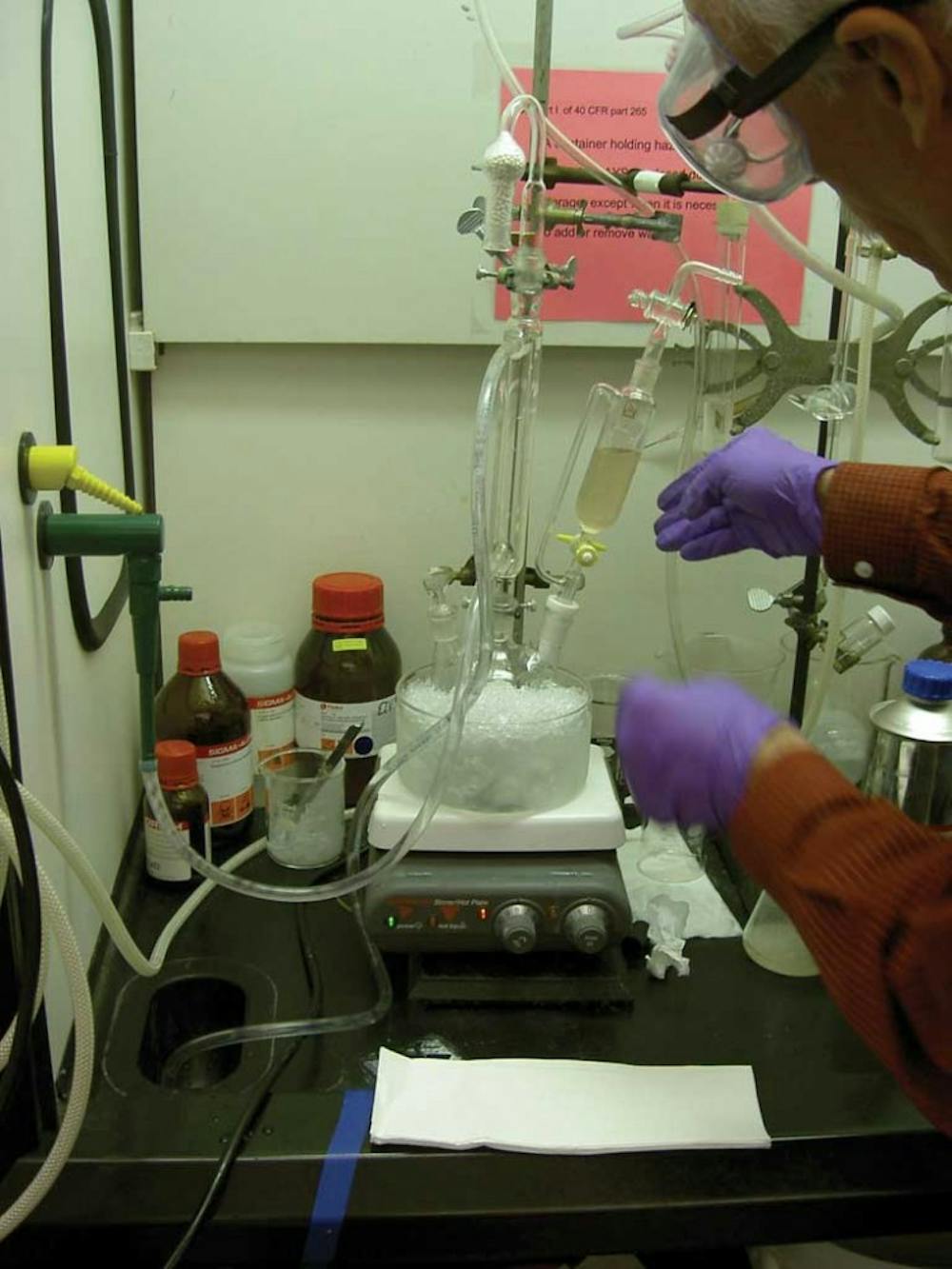Senior Eric Wiessner, along with chemistry professor, Eric Valente, completed a project using a patented chemical over the summer. (Photo courtesy of Eric Wiessner)
By Jonathan Cruz, Staff Writer -- cruz14@up.edu
At the end of this school year, many seniors will graduate with hours of research and field experience under their belts.
As a starting point for professional development, students are working with professors to complete experiments in many different fields such as chemistry, psychology and engineering.
Over the summer, chemistry major senior Eric Wiessner and chemistry professor Eric Valente completed a project using a patented chemical for Syn-Serv Co., a provider of a broad range of services to industrial market sectors.
"There are no better venues to pursue learning, other than a university," Wiessner said. "I had an amazing opportunity to work with real people... and see how experiments work."
Although the results and methods regarding the experiment cannot be released because the chemical used in the experiment is patented, Wiessner and Valente kept a journal with intentions of being published by Syn-Serv Co. sometime in the future.
"The money wasn't the best part," Wiessner said. "It was about the experience (gained) and learning how things interact with the world."
According to Valente, doing research at universities is a positive experience.
"He's (Wiessner) a hard working self starter," Valente said. "Very rapidly, we gave him the keys and he ran things on his own."
While Wiessner was working with chemicals, computer science major senior Steven Beyer programmed Roombas, an autonomous robotic vacuum cleaner.
Beyer worked with computer science professor Tanya Crenshaw on a project that involved a Cyber Physical System (CPS). CPS involves controlling an unmanned object over a network, such as the Mars Pathfinder project.
Crenshaw and Beyer used an iRobot Crate, a vaccum-less Roomba. The two named it Webby. Webby is connected to a mini Linux computer that transmits signals to her hard drive, which directs her to move in cardinal directions.
"It's a combination of optimism and experience that has worked well for this project," Crenshaw said. "He (Beyer) was really excited and had all of these ideas."
"If I ever got stuck, she'd be there to help me," Beyer said. "I learned more through research than in most other classes. I learned things that are applicable to the real world."
The team published their results with USENIX, a computer association, and the two spoke at a USENIX conference regarding the paper, which was the first time for Beyer.
"There was a lot of industry people and people with Ph.D.s (there)," Beyer said. "I felt like a small fish in a big pond."
By creating this CPS test bed, Beyer and Crenshaw helped lay the groundwork for other experiments to be conducted.
Next semester, psychology professor Deana Julka, biology professor Andrew Lafrenz and a team of students will begin an interdisciplinary pilot study that measures the physical activity of college students.
The study will compare the amount of physical activity college students think they get versus the actual amount of physical activity they get by tracking all motions with accelerometers. However, the details of the study are unknown because the project is currently in the planning process.
"(From this experiment) we hope to increase awareness of the relationships between physical and mental health," Julka said. "We want to be able to draw attention to this and educate others."
A reference manual for Wiessner and professor Valente. (Alissa White -- The Beacon)









